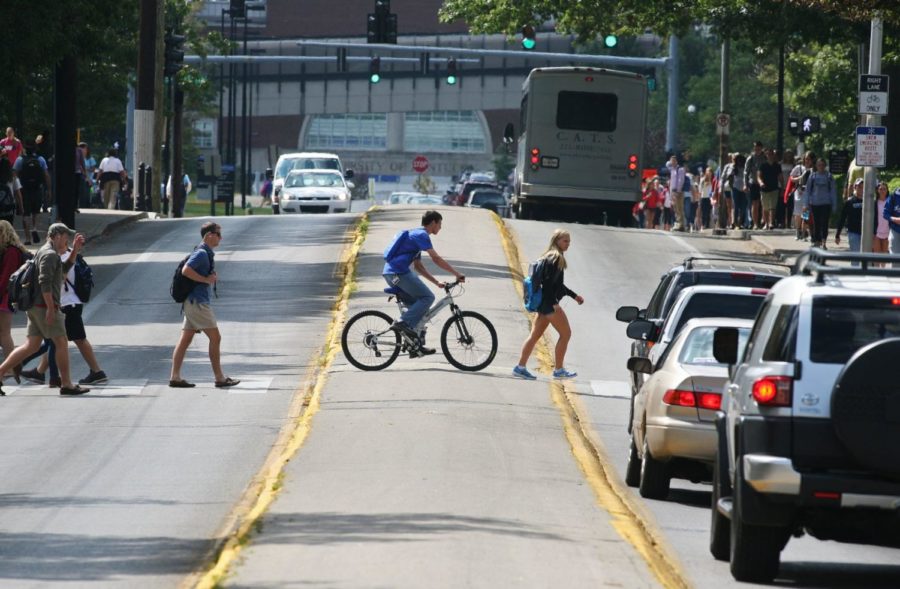Student safety should be top priority in deals by politicians
April 25, 2016
Politicians have to make deals to create legislation all the time, but sometimes these deals can go too far.
Lexington-Fayette Urban County Government councilman Bill Farmer Jr. went too far when he played politics against student safety in a recent Planning and Public Works meeting.
Here’s the deal: UK wants to close a portion of Rose Street between Columbia Avenue and Huguelet Drive to promote safety on campus. At the same time, the city wants UK to start negotiating a new lease with Rupp Arena.
UK needs the city’s approval to close that section of Rose Street because it is a city-controlled street. Lexington’s streets are either controlled by the city, the state or UK.
Farmer wanted the city to hold off on closing Rose Street until negotiations for a new Rupp lease had begun.
UK and the city seem to have a give-and-take relationship, but to use city streets and public safety as bargaining tools for Rupp Arena leases goes against the Urban County Government’s mission to serve its people.
Farmer said his comments at the Planning and Public Works meeting were more about creating a conversation than using Rose Street as a bargaining chip. The city and UK generally have great relations, he said, and the city should take its time before allowing UK to go ahead with the street closure.
Farmer also said he and UK had productive talks following his comments.
The city should be careful and thorough before closing Rose Street, but Rupp Arena should not be part of the discussion. The question should be this: “Would opening up Rose Street to traffic create dangers for students?”
If the answer is yes, then the city should find a way to fix it.
Unless that involves building a giant bridge between the Chemistry-Physics Building and the Lexington Convention Center, let’s keep Rupp Arena out of the discussion.
Councilman Jake Gibbs, who represents UK in the city’s 3rd District, agrees the two discussions are unrelated and said an open Rose Street is dangerous to students. He said the city may try to negotiate with UK because the university, in part of its Strategic Plan, wants to close Hilltop Avenue between Woodland Avenue and University Drive (the section of Hilltop that borders both The 90 and the W.T. Young Library).
Closing that section of Hilltop makes accessing the parking garage near the library difficult, and it would force traffic to Sports Center Drive and University Drive.
The city may not want Hilltop to shut down, but no one is sure who actually controls the street. If UK controls it, then they can shut it down without the city’s approval. If the city controls it, then they can force it to remain open.
Gibbs said he would advise the city to not allow UK to close Rose Street until someone figures out who controls Hilltop.
While this is still using city streets as bargaining chips, the closing of Rose Street and the closing of Hilltop are related, and it makes sense to hold off on closing either street before the city can figure out how closing both will affect traffic flow.
This serves as an example of using the correct bargaining chips. Rupp Arena shouldn’t even be on the table.
Email opinions@kykernel.com
































































































































































